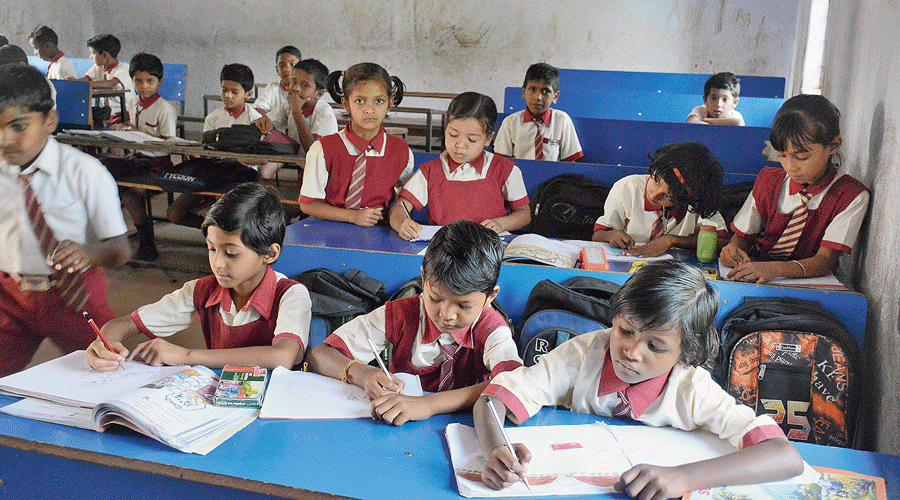There is reason to be afraid. When Amartya Sen says this, it indicates the scale of the damage that has been wrought on India’s social and cultural fabric. Mr Sen was on a panel discussing the needs of children returning to in-person classes after the trauma of the pandemic. In his speech, he expressed fear at the possible breakdown of the nation and connected the potential resistance to it to meaningful education in school. A ‘sound’ schooling system gives a child an understanding of a pluralistic society, for by studying India’s history, students are able to grasp why the country welcomed other cultures, other peoples, other faiths. Convergence, co-existence and content have been the core of India’s unique spirit, not hatred, violence and dispersal. That has changed completely now, and the studious cultivation of hate by the regime in power — an ‘art’, Mr Sen said — is going to extraordinary lengths.
Yet it is a different kind of art that schools teach children about — how Indian architecture, music and dance, literature and painting, were ‘collaborative’ in their production. Such knowledge could protect India’s open-hearted heritage from dissolution. The spirit of togetherness would be a bulwark against the fragmentation caused by ‘vilifying’ other faiths that is driving the country towards collapse. Mr Sen talked of a good schooling system in spite of his awareness of the way distortions have infiltrated education. The omissions in history, sociology and political science textbooks are about to cause great harm to school education. Mr Sen believes that in spite of this reduction of the roles of other communities in India’s flowering, the truth cannot be tampered with. But in classroom teaching, how is the systematic alteration of the horizons of history, society, culture and political thought to be exposed? The cause of fear is greatest here, because it is the school system itself that is under attack. The glamorous promises of the new education policy are a cover for centralised, often digital, methods of teaching being pushed in, that would not only exclude large swathes of children from education but would also cripple the ability to think independently and keep pushing the boundaries of received knowledge. It is, therefore, the urgent duty of all Indians to ensure that children do get a sound schooling system and not one that purposefully encourages hatred. Tolerance is not enough anymore, as Mr Sen pointed out, and working together for unity alone can save the country’s tradition and diversity. For Mr Sen, this working together is chiefly between Hindus and Muslims. But the fragmentation that so alarms him today does not stop at a division between two communities; it runs in different directions and works at different levels. The agents of division rely on the difficulties of uniting when fragmentation is so various. For schoolchildren to absorb the principles of equality and pluralistic unity, school education must be salvaged first.











